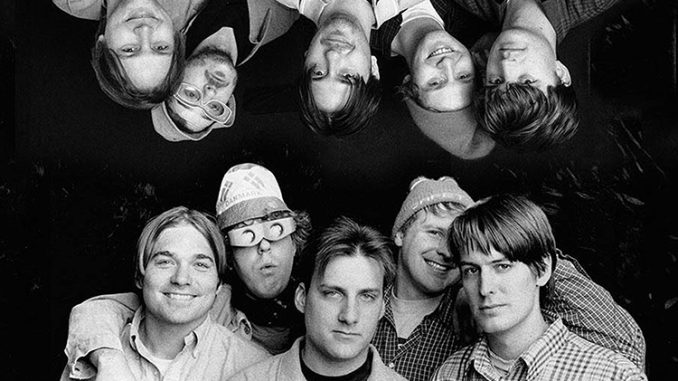
The Melbourne International is on now and running until August 24. Details at miff.com.au
By James Bell.
Pavements (Directed by Alex Ross Perry)
Screening: Friday August 22 & Saturday August 23
Early in Alex Ross Perry’s motley portrait of 90s rock band Pavement, we’re treated to a micrososmic scene that perfectly encapsulates the dichotomy of the central band’s legacy. Actress Zoe Lister-Jones, who is starring in the Pavement musical, Slanted! Enchanted!, is describing the life-changing quality of the band and their ineffable influence on her life before being cut off by a fellow cast member seated beside her, who confesses, “I heard Pavement for the first time six weeks ago”.
Pavements is full of these moments. Director Alex Ross Perry knowingly undercuts the torch-bearing proclamations from the band’s admirers with the reality of their relative and semi-deliberate obscurity. The American filmmaker fittingly suffuses his film with one of Pavement’s essential ingredients: irony.
The backdrop of Pavements is a reunion tour, twelve years in the making, that coincides with an accompanying jukebox musical and fictional ‘big budget’ biopic that features intermittently in behind-the-scenes snippets throughout the two hours.
The mock biopic, Range Life, stars Stranger Things’ Jo Keery as Stephen Malkmus. The prevailing perception of Pavement’s frontman was that he was the quintessential slacker, a mere archetype of a distinctly ‘90s disposition. Ross Perry cleverly subverts this by having Keery more or less fail at accurately depicting the singer. Keery barely scratches the surface of his portrayal, reducing Malkmus to a vocal fry.
The theatre production, Slanted! Enchanted!, a blatantly incongruous project, surprisingly serves as a primary source of pathos throughout. In the earnest performance of these loose, ironically detached rock songs, the musical reveals an undercurrent of emotionality that belies the band’s easy-going slacker aesthetic.
The melancholy of Slanted and Enchanted’s centrepiece, ‘Here’, is cleverly deployed as a motif. “I was dressed for success/but success it never comes” Malkmus grumbles in its opening line, an obvious false flag from a singer who actively eschewed a conventional, mainstream career path and its rewards for a more dignified indie-rock esteem. But it retains resonance in this context; here it’s imbued with a retrospective yearning for adulation.
Ross Perry also attempts to add a counter to the idea of the band as an unserious entity. Pavement weren’t as footloose and fancy-free as their reputation might suggest. Stephen Malkmus wasn’t afraid to lash the media or even his peers. The film highlights Malkmus’ famous sledge of contemporaries The Smashing Pumpkins and Stone Temple Pilots. Then asked about it in an interview, Malkmus turns the tables on his critics, remarking that he helped “light a fire under their butts”, a sentiment pundits had reserved for criticism of the band themselves.
One of the few things Pavements demonstrates in earnest is the modest benefit of never selling out. The band, to this day, is appealing partly due to their enduring coolness. They continue to compel an intense tribalism amongst their admirers, and the film evinces the satisfaction in that. They might not have been dressed for success, but they were dressed for the job they wanted.

